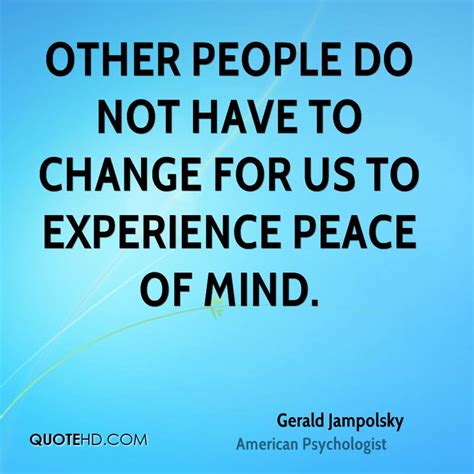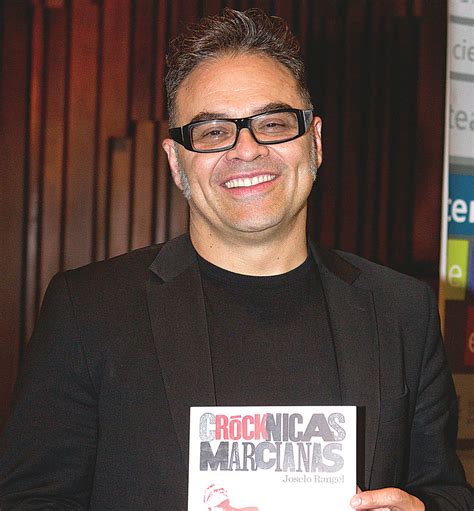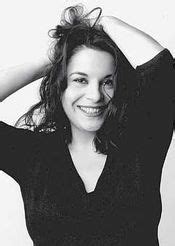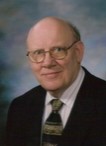A Quote by Peter Sunde
Like most people who go to prison for an unfair thing, we become more persuaded in our own beliefs.
Related Quotes
Creative power has to filter through our beliefs, attitudes, emotions, and habits. The more negative and constricted our beliefs and patterns are, the more they block the creative energy. Most people hope that by ignoring negativity, it will go away, but the reverse is actually true. Through recognizing, acknowledging, and experiencing it, the blocked energy can be released. You are then free to replace it with positive beliefs and attitudes.
More and more people are beginning to feel that there must be another way of thinking, perceiving, and acting. And perhaps the beginning of another way of looking at the world is to re-evaluate all of our beliefs. It is, after all, our beliefs that determine what we are, experience, and expect. When we are willing to take a new look at our own beliefs, we then have an opportunity to begin rediscovering who and what we are and to redetermine our true purpose on Earth.
If we choose only to expose ourselves to opinions and viewpoints that are in line to our own, we become more polarized, more set in our own ways. It will only reinforce and deepen the political divides in our country. But if we choose to actively seek out information that challenges our assumptions and beliefs, perhaps we can begin to understand where the people who disagree with us are coming from.
Anecdote: A house that is rooted to one spot but can travel as quickly as you change your mind and is complete in itself is surely the most desirable of houses. Our modern house with its cumbersome walls and its foundations planted deep in the ground is nothing better than a prison and more and more prison like does it become the longer we live there, and wear fetters of a association and sentiment.
That's how oppression works. Thousands of otherwise decent people are persuaded to go along with an unfair system because changing it seems like too much bother. The appropriate response when somebody demands a change in that unfair system is to listen, rather than turn away or yell, as a child might, that it's not your fault. Of course it isn't your fault. I'm sure you're lovely. That doesn't mean you don't have a responsibility to do something about it.
We think that by protecting ourselves from suffering, we are being kind to ourselves. The truth is we only become more fearful, more hardened and more alienated. We experience ourselves as being separate from the whole. This separateness becomes like a prison for us - a prison that restricts us to our personal hopes and fears, and to caring only for the people nearest to us. Curiously enough, if we primarily try to shield ourselves from discomfort, we suffer. Yet, when we don't close off, when we let our hearts break, we discover our kinship with all beings.
We don't think of ourselves in Cafe Tacvba as representatives. When we go and make new material, we feel that our creations are more authentic if we think of ourselves. We don't say, "Let's be the representatives and show the moment that our society is in." But when it comes to performing and we visit other countries, like New York, many people approach us, people who are outside of their own country, and we become a referent. Our shows become this sort of ritual, and our performances become that moment of identity.
Prison is quite literally a ghetto in the most classic sense of the word, a place where the U.S. government now puts not only the dangerous but also the inconvenient—people who are mentally ill, people who are addicts, people who are poor and uneducated and unskilled. Meanwhile the ghetto in the outside world is a prison as well, and a much more difficult one to escape from than this correctional compound. In fact, there is basically a revolving door between our urban and rural ghettos and the formal ghetto of our prison system.
The most miserable prison in the world is the prison we make for ourselves when we refuse to show mercy. Our thoughts become shackled, our emotions are chained, the will is almost paralyzed. But when we show mercy, all of these bonds are broken, and we enter into a joyful liberty that frees us to share God's love with others.


































